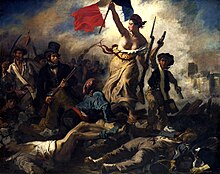This is an old revision of this page, as edited by RJHall (talk | contribs) at 16:10, 26 June 2011 (Bundle refs.). The present address (URL) is a permanent link to this revision, which may differ significantly from the current revision.
Revision as of 16:10, 26 June 2011 by RJHall (talk | contribs) (Bundle refs.)(diff) ← Previous revision | Latest revision (diff) | Newer revision → (diff)| An editor has nominated this article for deletion. You are welcome to participate in the deletion discussion, which will decide whether or not to retain it.Feel free to improve the article, but do not remove this notice before the discussion is closed. For more information, see the guide to deletion. Find sources: "Commoner" – news · newspapers · books · scholar · JSTOR%5B%5BWikipedia%3AArticles+for+deletion%2FCommon+people%5D%5DAFD |
| This article does not cite any sources. Please help improve this article by adding citations to reliable sources. Unsourced material may be challenged and removed. Find sources: "Commoner" – news · newspapers · books · scholar · JSTOR (October 2009) (Learn how and when to remove this message) |
| This article may need to be rewritten to comply with Misplaced Pages's quality standards. You can help. The talk page may contain suggestions. (May 2011) |

In the estate system of social stratification, commoners are historically the bulk of the population who are neither members of the nobility nor of the clergy. They were the third of the Three Estates of the Realm in medieval Europe, consisting of peasants and artisans. With the rise of the bourgeoisie during the Late Middle Ages, an intermediate class of wealthy commoners developed, ultimately giving rise to the modern middle classes.
After the French Revolution, the Napoleonic wars and with industrialization, the division in three estates, nobility, clergy and commoners, had become obsolete, and in communist theory, society was now divided into capitalists on one hand, and the proletariat or the masses on the other. In Marxism, the people are considered to be the creator of history. By using the word "people", Marx did not gloss over the class differences, but united certain elements, capable of completing the revolution. The sympathy for the common people gained strength in 19th century in many countries. For example, in Imperial Russia a big part of the intelligentsia was striving for its emancipation. Several great writers (Nekrasov, Herzen, Tolstoy etc.) wrote about sufferings of the common people. Some organizations, parties and movements arose, proclaiming to the liberation of the people: "People's Reprisal", "People’s Will", and others in the 19th century, "Party of Popular Freedom", "People's Socialist Party" and others at the beginning of 20th century.
In The Code of Hammurabi punishments were harsher for harming a noble than a commoner.
See also
- Commoners in the United Kingdom
- British subject
- Bourgeoisie
- Hoi polloi
- Republicanism
- Deme
- Folk
- Ochlocracy
- Demagoguery
- Populism
- Tyranny of the majority
References
- See for example:
- Newman, David M. (2008). Sociology: Exploring the Architecture of Everyday Life (7th ed.). Pine Forge Press. p. 294. ISBN 1412961521.
- Swain, Smarak. Social Issues of India. New Dehli, India. p. 199.
- Sanderson, Stephen K. (2000). Sociological worlds: comparative and historical readings on society. Taylor & Francis. pp. 180–182. ISBN 1579582842.
- Andersen, Margaret L.; Taylor, Howard F. (2010). Sociology: The Essentials (6th ed.). Cengage Learning. p. 181. ISBN 0495812234.
{{cite book}}: CS1 maint: multiple names: authors list (link)
- Western Civilization: Ideas, Politics, and Society By Marvin Perry, Myrna Chase, Margaret C. Jacob, James R. Jacob, page 13